What Do You Do About School?
“So… what do you do about school?” Home education while travelling is a topic most people are curious about, and this is generally one of the first questions I get asked whenever we meet new people.
And, as a few of you have asked this on my Facebook page as well, I thought it was probably time to get around to answering it.
After our first year, I wrote this post, which covered what Z had learned in that year, and more recently I wrote about the life lessons kids can learn from travel: if you’re thinking of doing home education while travelling yourself, it’s probably worth reading these.
I didn’t set out with much of a plan for Z’s education. It was more of a vague idea that Z, then nine, would learn more from travelling the world for a year (now rising three!) than he would by sitting in school…
This has proved outstandingly true for our family and will, I think, prove true for most. So I’m going to try and explain some basics of how we do it, and how we are able to do it, and how it’s worked for us.
Is It Legal?
Yes. Home schooling is legal in the UK — unlike many parts of Europe — but much less usual than it is in the US. So Z remains technically within the home education framework there, even though we’re travelling the world.
I need to show that he’s receiving a balanced education that covers all the bases — science, maths, languages, history, geography, physical education, arts, computing and religious education — and I filled out some forms along those lines before we set out.
In practice, this means that there’s a lovely guy at the relevant authority in our old home borough who thinks Z’s getting a great education and really likes the work that he delivers so, essentially, I email him some pieces of work every so often, and he says, “Yes, fine, carry on.” In fact, I should probably email him now.
Does It Work?
Yes. One reason we get such an easy ride on the home education front is that Z’s achieving in most areas (handwriting excepted) quite a long way above what’s expected for his age (11).
This is an essay that he wrote recently on his own initiation.
Well, kind of “on his own initiation”. Basically, I said, “You haven’t written anything for ages. Write something!” and he said, “OK. I’ll write an essay,” and I said, “What are you going to write about?” and he said, “I’ll show you when I’m finished. Leave me alone.”
It’s all his own work, entirely unedited by me — if he were older, I might have asked him to unpack some of his ideas (as it was, all I said was, “You use ‘indeed’ quite a lot and you might want to look at how the tone drops in the last couple of paragraphs, but I think it’s really good”) — but what I really like about it is the global perspective he delivers.
Z’s always been a smart kid, although he barely wrote ANYTHING in school. But I look at this and I think, “Yep. Travel’s taught you more than I can quantify.”
And I’m honestly not sure there’s any better way to get a global perspective on the world than by travelling it (fairly slowly) and spending time with lots of different people.
Do You Follow A Curriculum?
No. I’d describe what we do as unschooling, with some additions. Radical unschoolers would probably argue that we’re not unschooling, but I think it’s the best label for this type of home education while travelling.
We have a deal that Z has to do some writing from time to time — he loathes handwriting and is a slow writer, so he does it on the computer, which has brought his skills on in leaps and bounds.
Because he’s interested in science and maths and I can’t meet his needs in those areas, he has a teacher who works with him on Skype.
Z currently has big plans for his future (what eleven-year-old doesn’t?!). He wants to go to Oxford, Yale or Harvard, set up a billion dollar corporation and then go into politics (he thinks the time will be right for green politics, and that, with enough money behind him, he can be a conviction politician).
So, as a parent, I’d be failing him if I didn’t put him in a position to give the first stage of these current goals his best shot.
This includes getting him a teacher for maths, because, as became painfully clear with his fractions homework back in Bali, I am really less than zero help on that: Z himself is also absolutely adamant that any maths should be left to professionals.
Still, most of what we do is learning from what’s around us, backed up by books, the internet, movies and more. Sometimes we’ll crystallise learning. Sometimes he learns on his own. Most of the time it’s not obvious that he’s learning at all.
What About Reading?
Z was reading baby books before he was three, and Harry Potter when he was four. Now he reads as well now as many adults: online, he enjoys and understands The Guardian, National Geographic, The Economist and the New Scientist. Offline…
… Well, books are not as hard to find as you’d think when you’re travelling. There are great English language bookshops in most major world cities, often with good kiddie sections: a lot of his understanding of China comes from AsiaPac’s excellent cartoon series, while the AUC bookstore in Cairo was great for Egypt.
We’ll swap books with other travellers in out of the way places, use book exchanges and second-hand book stores (he likes classic sci-fi, which is typically easy to find, prefers The Hobbit to The Lord of the Rings and is getting over his Clive Cussler addiction, although we’re still looking for the third book in the Hunger Games). In Ubud, we were blessed with the amazing Pondok Pekak library, and you’d be surprised how many places have lending libraries you can join.
Z also reads online. He’s been reading up on the Rio Conference lately. And he’s also getting more into bigger books that last longer than the cartoon stuff he typically gravitates to.
He’s reading The God Delusion at the moment, and working through Herodotus, and whenever I find a classic poem that’s relevant to where we are or what we’re doing, I’ll throw that at him too. We talk about what he’s read, and explore things like motifs, unreliable narrators, closure, characterisation as and when they come up.
What About Writing?
Besides his blog, I’ll get Z to do writing projects, including genre writing, based on things that are interesting to him. We discuss what he might want to write about, and what genre he might want to do it in, then look, where appropriate, at good examples.
Because I’m a bitch, I don’t count his endless contributions to the Minecraft blogs and forums towards writing.
One example? He decided he wanted to do a poster for the Green party. So we talked about ways in which political communications are done: posters, fliers, manifestos, leaflets…
He decided he wanted to write a flier. So I told him to get online, to read the manifestos of our major political parties, and look at the type of language used and concerns raised. Which he did.
(One of the advantages of an unschooling approach is that, given he spends most of the week playing or doing activities, he’ll quite happily buckle down and read several hundred pages of party political literature.)
He then produced a draft. I fed back that some of his vocabulary was too complex, and that he needed to put a more local perspective on it — why Green is good for London — and simplify it. The second draft was better, though still too complicated.
When we started, I’d spend time on his first draft explaining basics like when to use a full stop and when to use a comma, how to use a semi-colon, how to do direct speech, capitalisation yada yada. Earlier this year we were grappling with paragraphing and the overuse of brackets (as a recovering subeditor, I’m careful not to edit his work but to teach from it).
Now it’s much more big picture feedback. Structure. Style. Maybe a little bit of syntax, but his writing’s very controlled.
And, sometimes, writing turns into something else. So he was working on a story about a man crossing over from death to life, and I pointed him to Ambrose Bierce’s Incident at Owl Creek Bridge. He read that, and appreciated that, and the story kind of stopped for the evening. I still consider that good learning, though (and his stories are pretty good: here’s one).
Handwriting is a gap here. It’s always been a weakness of his but I figure that when it becomes important for him educationally (and IF it does: he may well be able to do exams on laptop) he’ll sort it out himself. His handwriting is actually much better than it was 2.5 years ago, partly because he’s physically more together, and partly because he’s had to work in Chinese characters.
What About Science?
I like to leave science and maths to people who know about it, because I’ve taught Z all the science I can remember. Not to mention some that I’ve remembered wrong and some that I’ve forgotten. Ahem.
But we do also unschool this. When we spent our four days in the Sinai Desert, climbing canyons and looking at rock formations and fossils, he learnt a lot about geology.
So… We got back. I said to Z, “OK, you need to crystallise some of this. What about geology?”
We looked up some resources online, and he looked at them. He said, “I’m going to learn the rock cycle.”
“OK,” I said. “Are you going to write about it?”
“Nah,” he said. “I’ll draw it.”
And he produced a chart of the different stages of rock formation and the processes by which igneous, sedimentary and metamorphic rocks are formed. All off his own bat, but probably not that dissimilar to what he’d have learned in a classroom.
Then, because we were in the Sinai, which is Bible territory, and we found some crazy creationist stuff coming up on our searches, we switched on a VPN, did some Google searches anonymised from Arkansas, some Google searches from the UK, some Google searches from Egypt and compared the results.
And then someone introduced him to chick.com. Once he’d spent a few happy hours laughing at this, as an exercise, I got him to work out the major creationist arguments against evolution and counter them in an essay.
That took a couple of drafts and was probably a bit too high-level for him. But good for him, nonetheless.
We also watch the Khan Academy science videos from time to time. He explained the Higgs Boson to me the other night after reading up on it, and after time in all kinds of ecosystems — from helping out with turtle conservation to hanging out with baby pandas in Chengdu — his life sciences are pretty good too.
He’s read all the Horrible Science books a gadzillion times over, it’s hard to keep him out of a science museum, and he’s done a couple of big projects on turtle conservation and energy use.
I’m pretty confident that any gaps in his science when he heads back into formal education will be negligible compared to the gains: we find BBC Bitesize Science a really useful resource.
What Do You Do About Maths?
Now, maths is not a strong suit of mine, a fact that was brought home first during our titanic struggle with long division and secondly during an epic battle over maths homework in Bali.
Z knows this. I know this. My family and friends know this.
In fact, when I said to a friend we’d be travelling for a further two years, she said, “Great! And you can always get him a tutor for the maths if he’s behind when he starts school…”
To which I said, irritatingly, “Actually, I already have…”
Z’s onto his second maths tutor at the moment, after our first guy had the temerity to stop travelling and get a proper job: they were working with problems that integrated maths and physics, because Z wanted to learn physics.
Now they’re working on things that use maths and engineering type physics, and, after a shaky start, are now consolidating algebra.
They work over Skype, using a shared digital whiteboard, and, provided Z does his work in bold black felt rather than pencil, he can simply hold up his exercises to the webcam. This week’s homework has a lot of square root signs in it, so I guess they’re working up to quadratic equations.
My impression is that his arithmetic is not as fast as it might be had he been sitting in school doing exercises for three or four hours a week for the last two and a bit years, but his abstract maths is pretty strong. That said, he was in school in Bali for a few weeks last year and in the UK for a few weeks this year and his arithmetic held up fine.
What About the Humanities?
Travel gives you a really global perspective on history. Z can see World War II not just from the English perspective (Hitler invaded Poland and we gallantly defended them), or the US perspective (Japan bombed Pearl Harbour but we hated Hitler all along, honest), but also from an Asian perspective (Japan invaded China and then there was a crazy patch and we kicked out the Europeans — Hitler? WHO?!) and a Russian perspective (we defended the Motherland! What do you MEAN we invaded Poland?).
He knows his Chinese dynasties, more Ancient Egyptian gods and pharaohs than you can shake a stick at, his Greek and Roman deities, how Hinduism evolved into Buddhism…
He’s spent time with Buddhist monks, animists, Islamists (and ordinary Muslims), Catholics and more, he’s watched buffalo sacrificed at a funeral and a Hindu cremation — and, as we head to Israel, he’s going to get an even stronger handle on the sky god religions.
He’s got complicated theories about which deities derive from which, and he’s familiar with the Phoenicians, the Nabateans, the Crusaders and the Khmer kings who built Angkor Wat, the finer points of the Vietnam War, and life among hunter-gatherers.
Some of this is book learning. Much of this is travel. With books. I read a lot around what we’re seeing and doing as well to be able to help him with his learning: he’ll often choose to read things I’ve bought for myself. Essentially, it’s about visiting historic sites, visiting museums, reading books, following and understanding the current affairs of the country you’re in, and talking to lots and lots of different people, though we’ll also watch classic movies set where we are going.
Obviously, his geography’s pretty darn good, just by virtue of travelling and seeing different landscapes and ecosystems and geological processes from volcanoes through to karst landscapes.
What About Arts?
Where there are arts classes available, or opportunities to watch, learn and do arts, I expose Z to them: he made pots on a wheel in Cairo, for example, and silver jewellery in Ubud, Bali.
We travel with paper, pencils and felt tips, so sometimes Z draws — particularly when, as now, he’s on a computer ban. We visit art galleries and museums, and he makes computer art too, typically in Paint, for a game-making programme he uses called Stencyl. He also likes taking photos.
Musically, we’re nowhere. He didn’t learn an instrument in the UK. He’s had no interest in any of the music classes I’ve offered him (he played gamelan in Bali but had no desire to repeat it), but he did enjoy singing his school song in Bali.
He’ll mess around with computer music programmes and when he’s happy and concentrating, he hums. But, umm, that looks like it. For the moment, at least.
And, honestly, one of many reasons I see him spending his teens in school in Bali is so that he can have access to things like drama. He’s a good clown. In fact, his “I’m choking” act is a bit too good for comfort. And he likes watching movies, and was fascinated when we visited a friend on set in Jordan.
What About P.E.?
Z’s infinitely fitter and stronger than he was in the UK, though it needs to be understood that we’re coming from a low base…
In fact, the only race Z ever won at school was an egg and spoon race. “Wow!” I said. “That’s cool! What happened?”
“Oh,” he said. “Everyone else fell over.”
He does a lot of physical activity, from climbing and hiking through to riding horses and camels, diving, swimming, skiing and surfing: when he was nine, he climbed Mount Kinabalu, which a lot of fit 20-somethings fail to complete, and we’re hoping to do Everest Base Camp this year.
The only conventional sport he has any interest in is minigolf, so we seek out courses where we can. Team games? Not enthused. Dancing? You must be joking. Right now he’s really enjoying riding his bike around Dahab.
He’s got physical competencies some adults will never have, BUT being hit with a bracing run round a snow-clad field in the UK in January left him shell-shocked. He doubled his time (from shell-shocked and humiliated to merely mediocre) in the space of a week.
So I’m not sure where I stand on P.E. It’s an odd one. He’s learned more swimming by, well, being in the sea than he ever did from an hour in a pool a week. But this, like handwriting, is an area where he’s likely to find himself behind when he goes to school. And, like handwriting, it’s not an area that’s currently important to him.
What About Languages?
Z made good progress learning Chinese in China, but our teacher has currently gone AWOL, after family problems, so I need to have an honest chat with her if I can get hold of her, or possibly find a substitute.
He speaks a little conversational Indonesian, which he studied with me and at school in Bali, and has a few words of Arabic, Thai and other languages. The constant exposure to foreign languages seems to have been good for him, though, in that he can understand quite a bit of French by piecing together the similarities to English, and in Bulgaria he pieced together Cyrillic script.
We’re hoping to spend winter in China consolidating his Mandarin.
What About ICT?
Z has and maintains his own laptop, and is building games using Stencyl, a programme I unwisely described as “baby Flash” (it’s not babyish, apparently, “just intuitive”).
He looks after his own blog, does much of his socialising with friends overseas by parallel gaming on Skype, and can use the obvious Office software, even budgeting software like Excel, as well as LightRoom and other Mac stuff. He’s always been good with computers, and I’m figuring these experiments in coding will probably take him somewhere.
In Summary
Z spent a lot of his time in primary school — in all lessons excluding art, PE and music — zoned out, bewildered by the slow pace and frustrating his teachers by refusing to write (maths went OK, as he was delegated to help other kids).
Now he’s not bored. He’s made outstanding progress in the humanities, he writes really well, and, in fact, even in maths and science, where progress has been patchy, he’s come on much further than he would have done in school.
The beauty of unschooling is that it actually takes very little time, so he can learn at his own pace, which is fast, and have lots and lots of time to play.
There are things he’s missing out on, notably drama, music and team games, but I think this approach is basically working well for us.
And, he’s attended two different schools over the last two and a bit years, one in Bali and one in Norfolk (England), and in both he’s dropped in well, integrated well, very much enjoyed the social side of things, and not found the classroom too restrictive.
Now, I wouldn’t say we’ve got the perfect formula, or that juggling work, unschooling and travel is exactly easy. But home education while travelling works well for our family, and I’d recommend it for most.

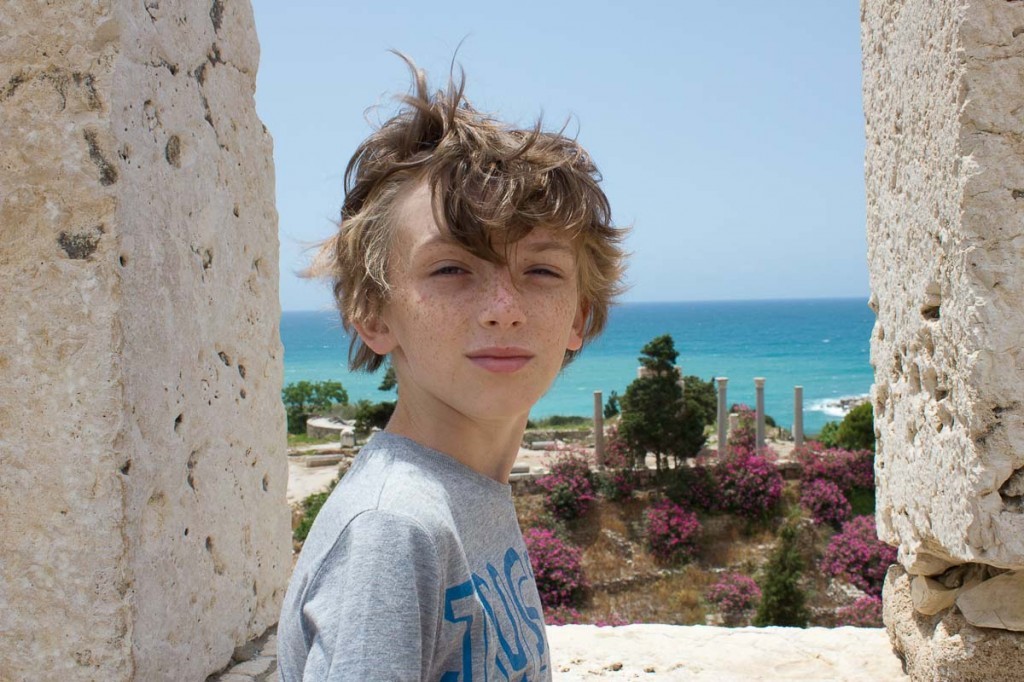
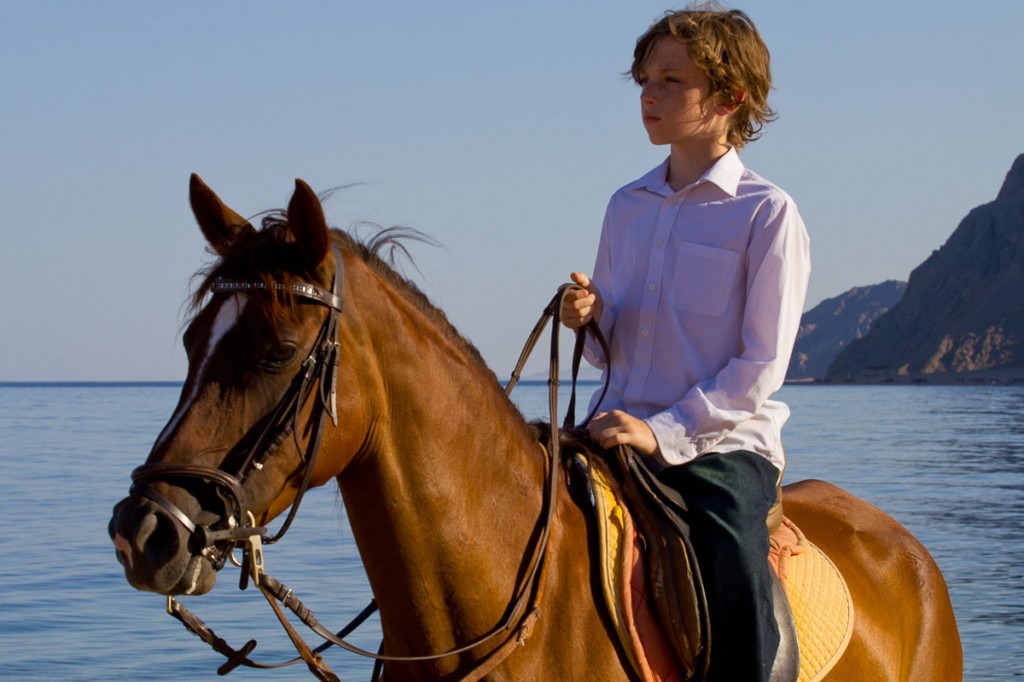
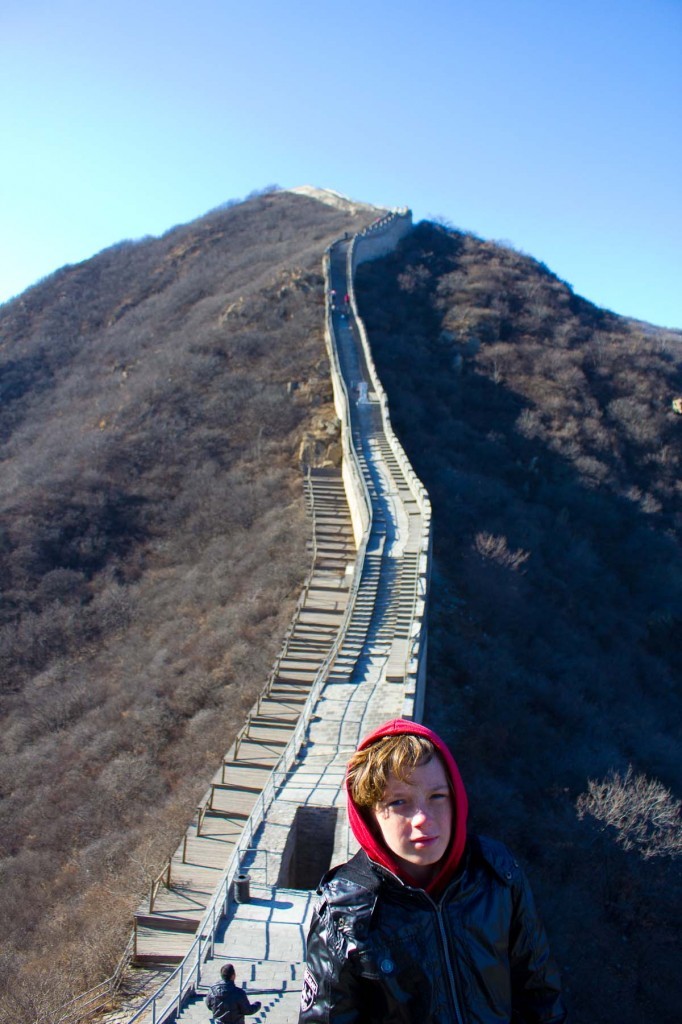
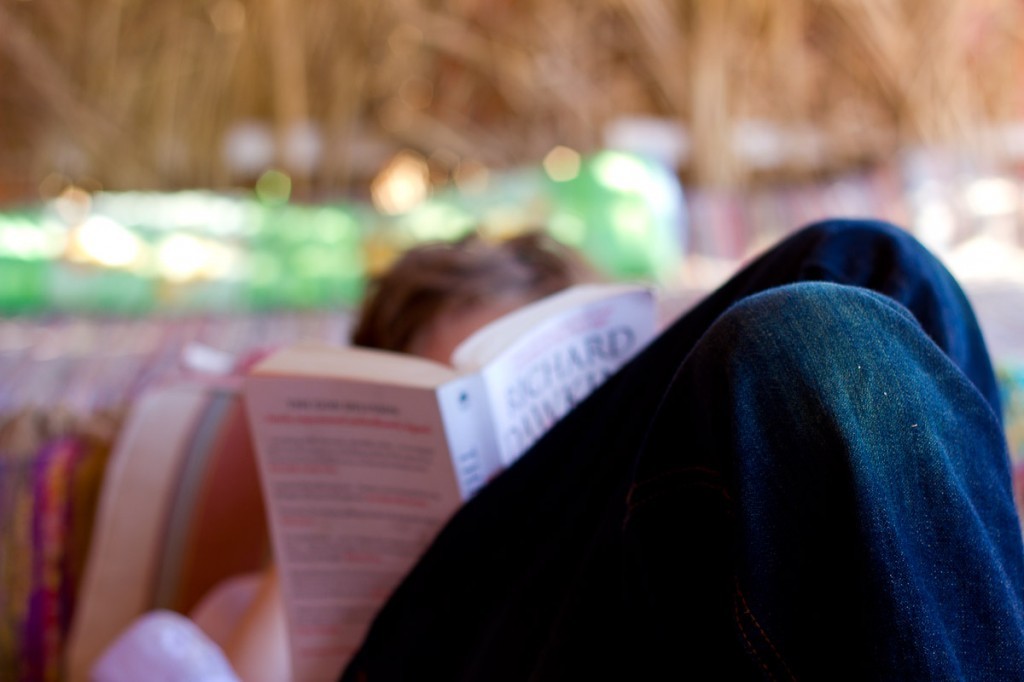
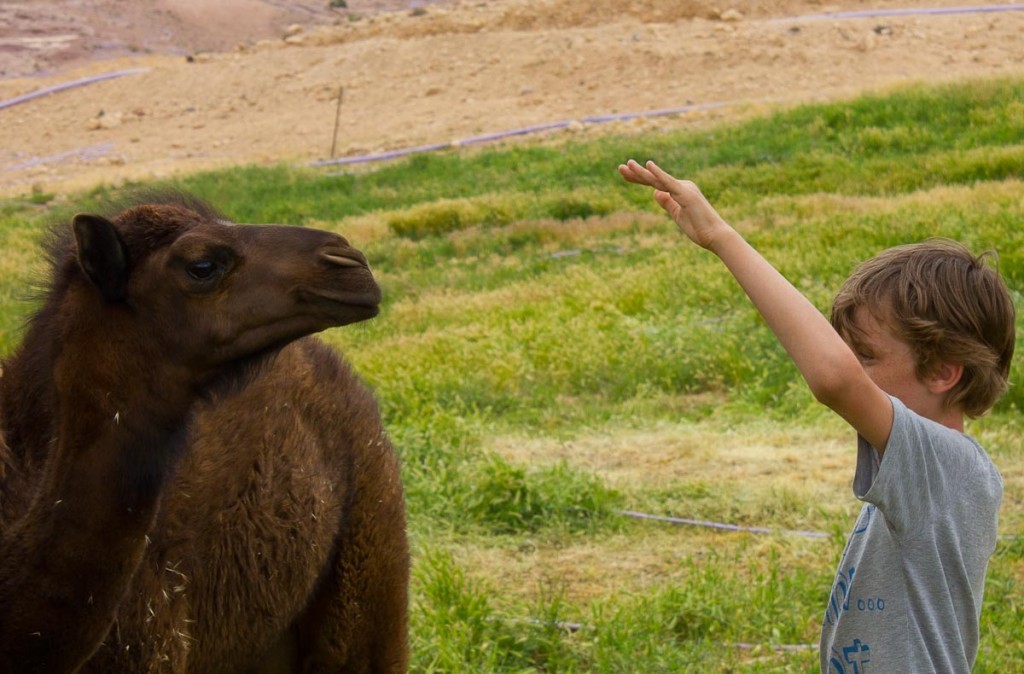
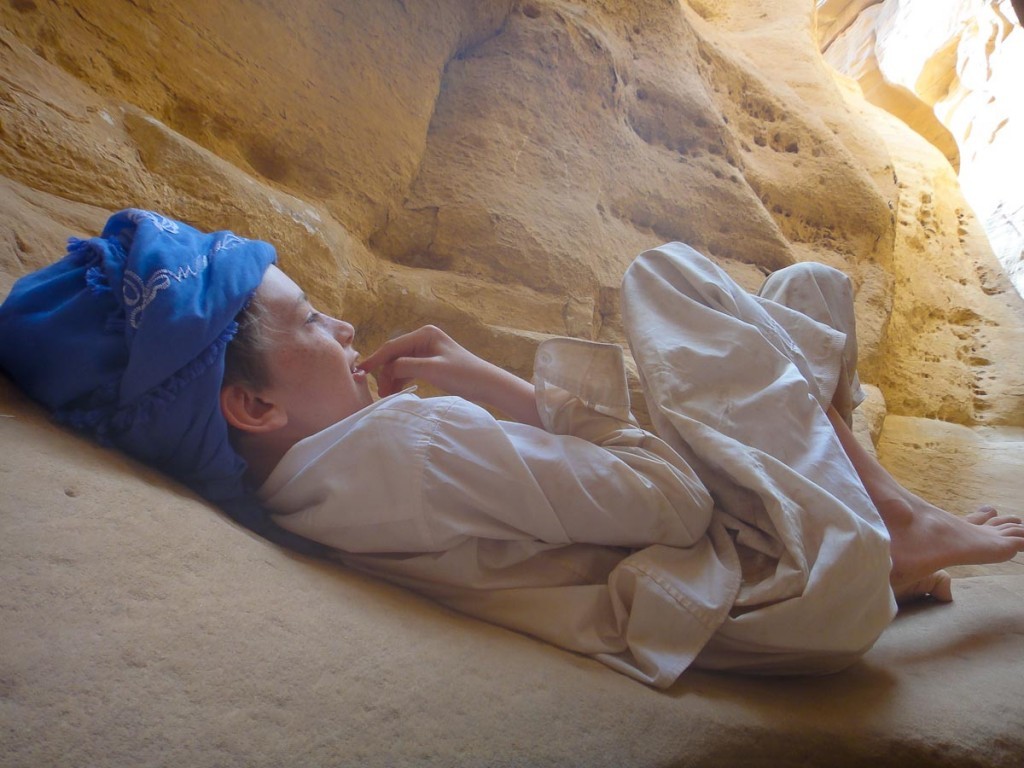
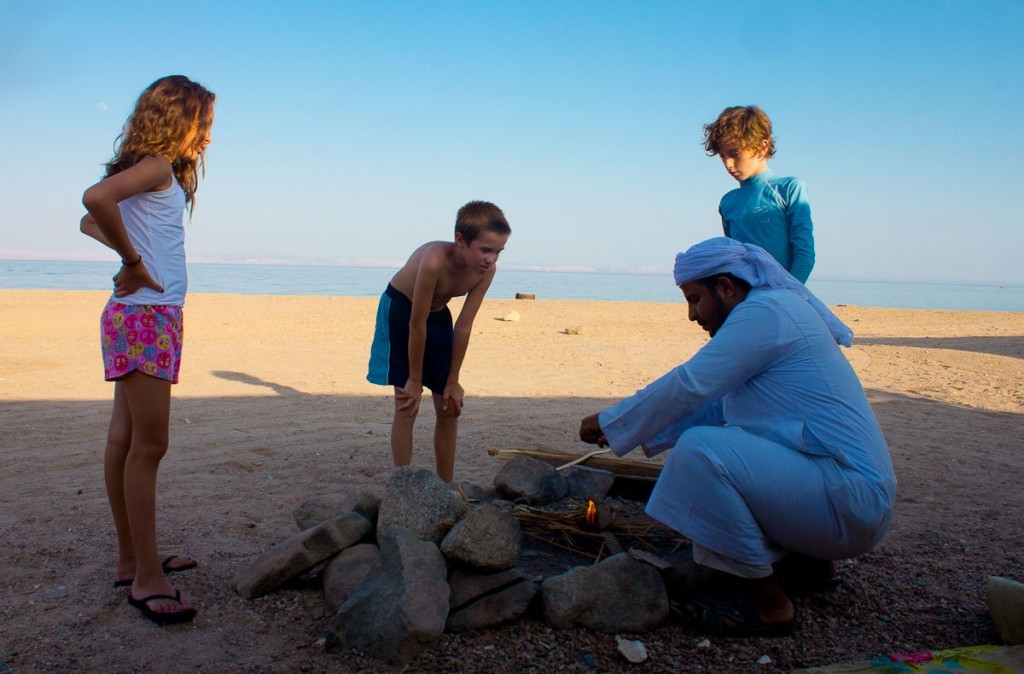
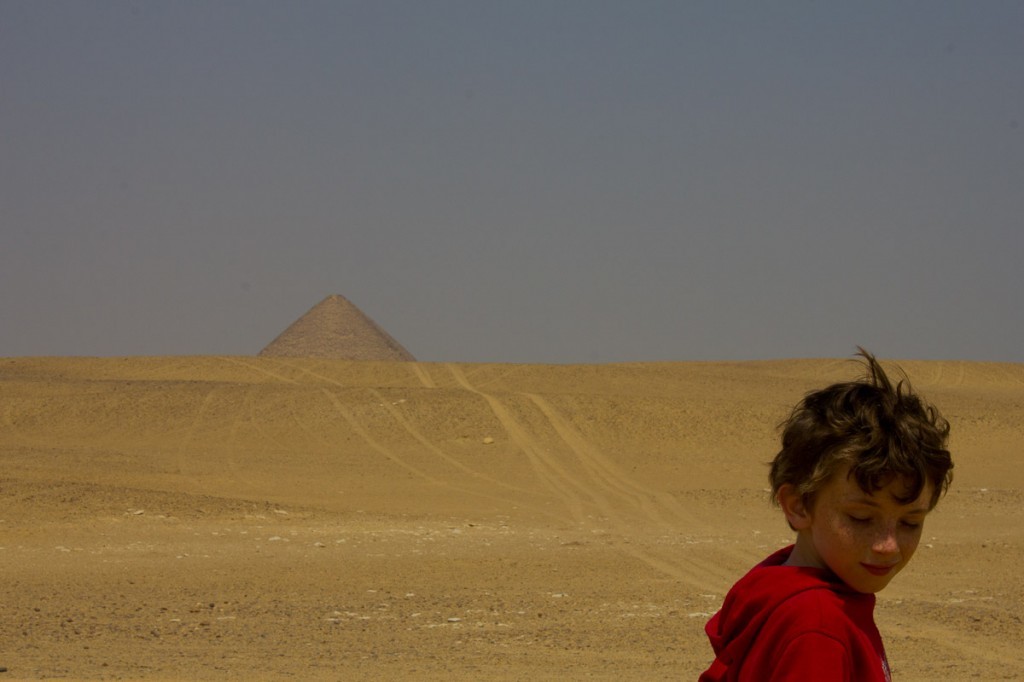
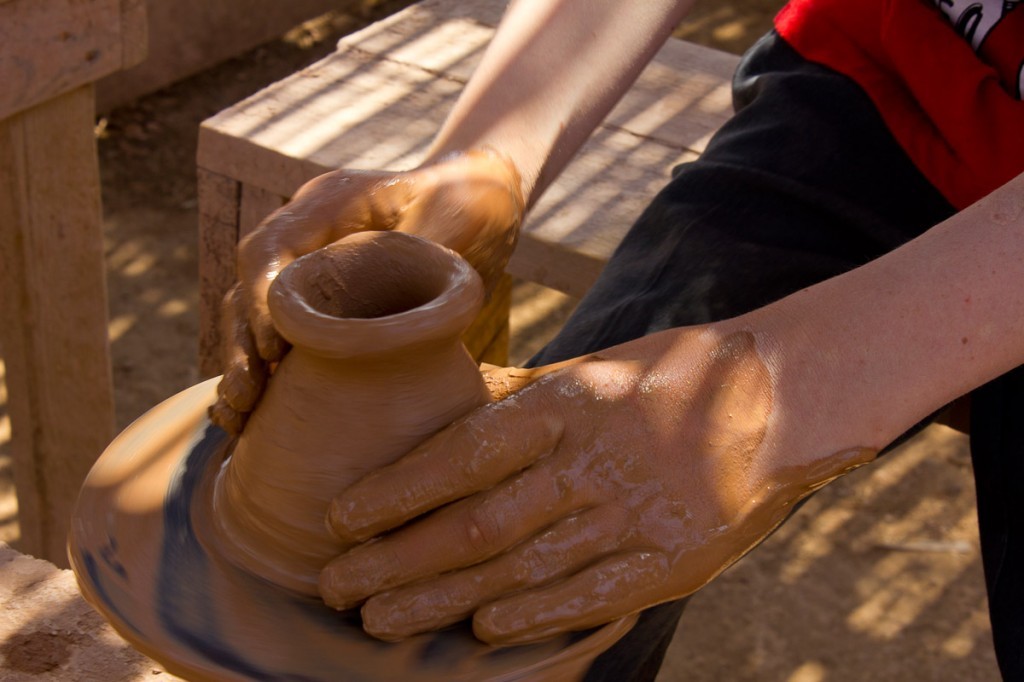
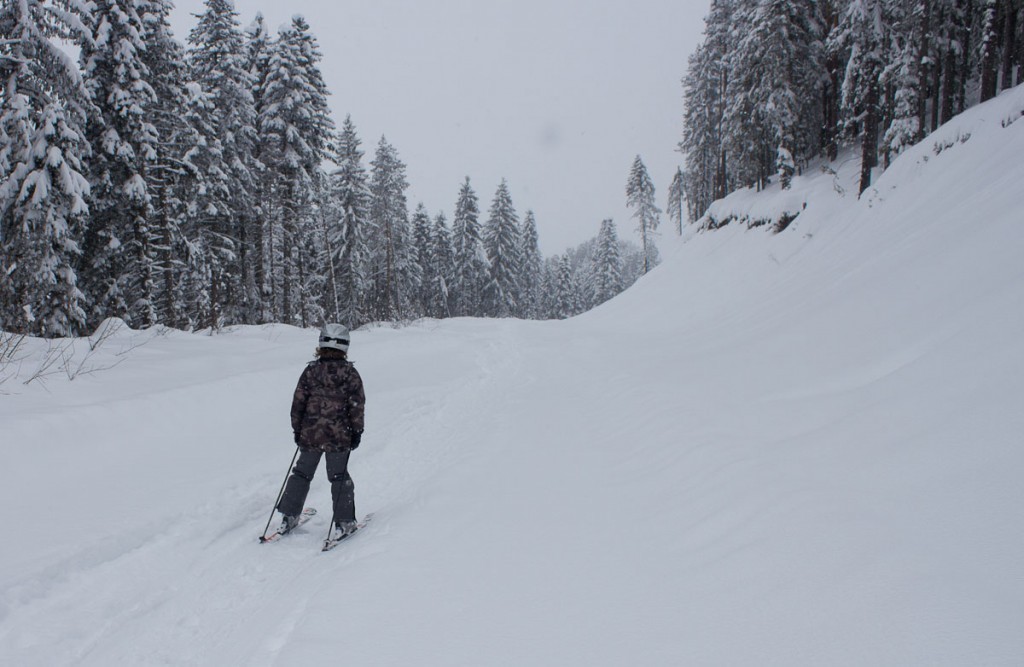
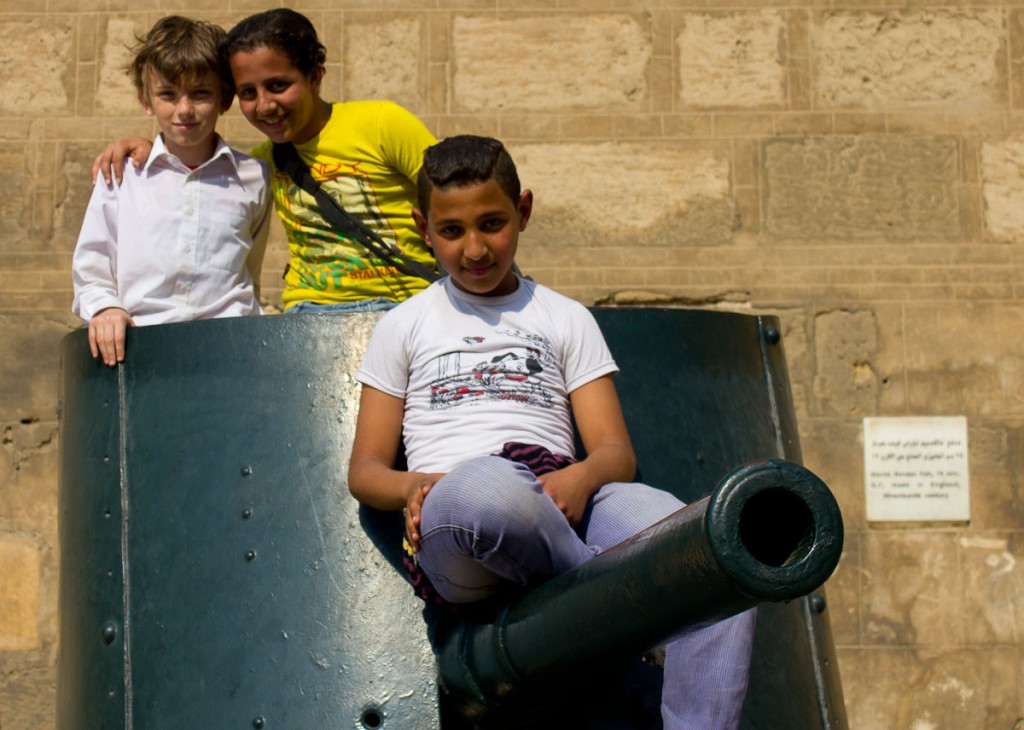
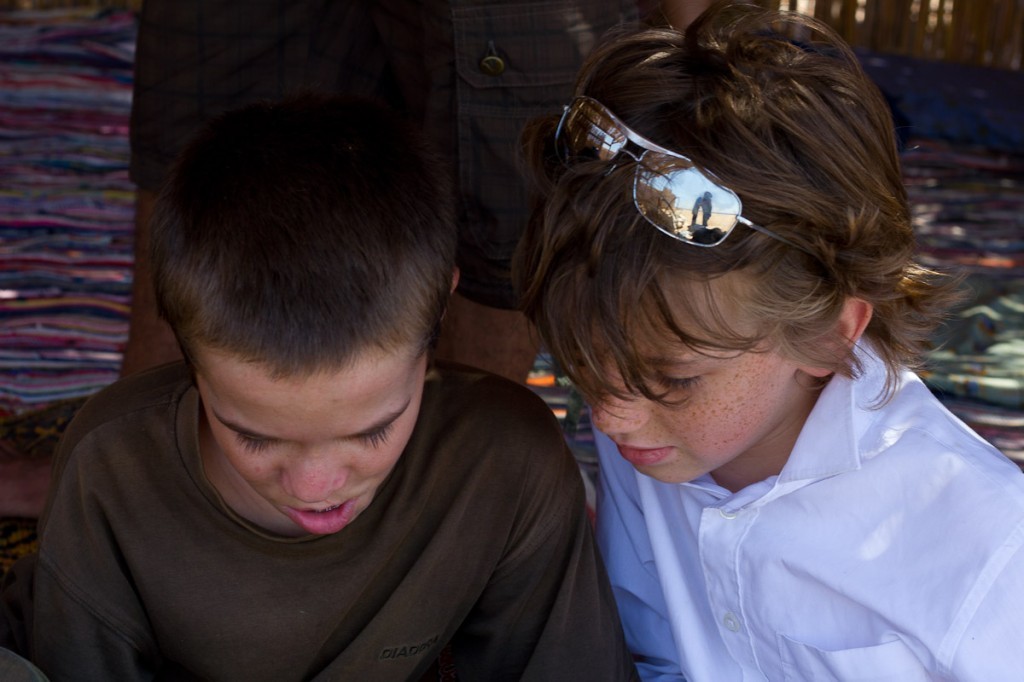
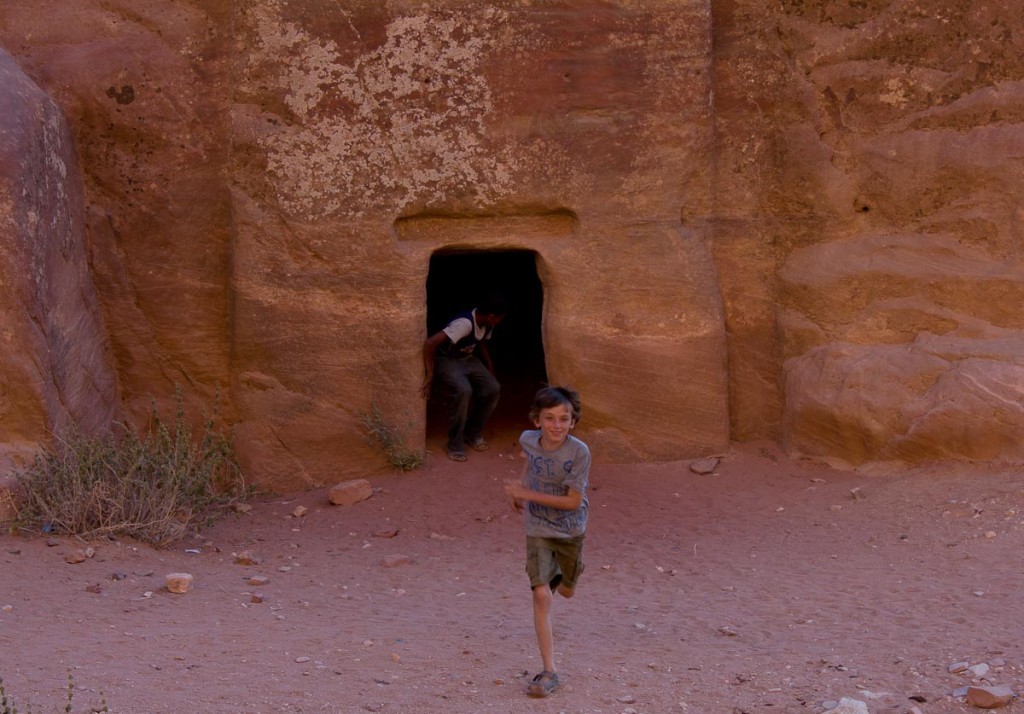
Hi,
I’m still in the “planning” stage now, but just wondering about the gov, I know you don’t need permission to take them out from school, but did the local council get in touch with you at all?
Your school should have a designated home schooling coordinator, who will be your first point of contact, and connect you to the home school people in the local authority. Then you have to fill out forms demonstrating how you’re going to meet their educational needs.
Z’s school was really cool with us doing it — we went to see the head and he basically said, “Great! He’ll learn a lot more doing that than he would sitting in school!”, so I’d start by talking to the school and getting them on side. Then we had a meeting with some home ed people from the council and I filled out some forms, and we were off. Especially if you’re planning to return, which we at the time were, it’s important to have both the LA and the school on side.
It’s easy enough to demonstrate that if you’re travelling they’ll be learning lots. Just try and break it down by subject for them and thinking of it in the context of where you’re travelling to: so History: Ancient Egypt, Vietnam War, World War II. P.E.: Riding, diving, swimming, skiing…
Um. You don’t have to fill out forms, or get permission, or give plans. You can be asked for evidence if it appears no suitable education is taking place, but I don’t see how that can be done in advance. Sounds like your la were taking advantage of your cooperative nature.
Well, I wasn’t particularly bothered by filling out forms, and I figure it typically makes life a lot easier if you are working with the system rather than against it. I know you don’t legally need permission, but I think life’s a hell of a lot easier if the school is on your side, particularly if you’re planning on reentering school education.
Sounds like Z is doing great. Really interesting to read in detail how it all breaks down for you all. Especially with your use of tutors, I’d not thought about that, but it sounds like a great idea. I have a couple of maths tutors who happen to be friends, so hopefully if we get stuck we could come to an arrangement.
Have you had any thoughts on how or if you’ll try and get exams under his belt? It’s something that is on my mind and I’m pondering a lot.
Thanks for sharing 🙂
My personal feeling on exams is that as a teenager I’ll want him to be in school (he wants to be in a regular settled life when he’s 13, so not that long to go now — eek!): we’re going to do this in Bali. I want him to be there a) for the exam thing (I see him doing iGCSE and IB, probably) — also, you can’t meet a young scientist’s needs without a lab and b) for the social thing that you need especially at that age, to break away from me as a parent and become his own person.
There are various routes for getting to exams and qualifications, typically taking part courses at community colleges (in the US), or part time schooling at high school: I think you could probably do it with tutors, but the question is whether you would want to, given all the valuable stuff that high school brings (like girls! or boys!). I’ll think about it more when we’re closer to that age, though, but the more I think on it, the more I think he’ll need a “home” to leave when he’s 18, if that makes sense?
How old are your kids?
Yeah, all that makes sense. I guess I’m coming at it from a different angle having always home educated and my kids do not want to do school. It’s just not what they see for themselves at the moment. Exams, at least maths and english are important ‘to me’, but then at the moment neither of mine want an academic career, well, one might we’ll see. I have a just 12 year old and a 10 year old.
Bali sounds interesting though. I’ll be interested to watch it, but annoyingly won’t be able to see how it works and learn from you as I have similar ages!
Dear T, you know I’m a big fan + I love your writing + I think you’re doing a TREMENDOUS job being Z’s mom-teacher + I wish I could be out on the road like you + Z …but… (that’s a small b)… don’t forget the childs’ personality. That’s the only thing you don’t mention above.
You have a special kid.
We discovered that our 2 boys need the structure of school – each for entirely different reasons.
Some kids do, some kids don’t. Mine were fine away from school for a year, but are genuinely happier + better with their daily school routine.
Even if every parent could be as great as you are as a parent-teacher, you might find (as we did) that the child’s inherent personality doesn’t lend itself well to unstructured/homeschooling.
Just something for any parent to keep in mind before/when starting such an adventure.
M
Thanks, Michelle. I think that is a good corrective: I also think it’s a lot easier to do unschooling when you’re not travelling “fast” all the time (I actually loathe the term “slow travel”). We’re going to be whirlwinding through Israel (by our standards, anyway), which will mean less time for structured work and lolling around.
I’m surprised that Little B found he needed the structure of school too: I can totally get how Big B would, but I thought Little B was more thriving.
But, yes, it is both down to the parent and the child how it works, and it’s easy to forget that and get evangelical about it…
Wow, Z is doing really well. If only I could motivate my 11 year old to do that much.
Has Z seen the Helix magazine from the CSIRO in Australia? Honestly, it sounds like he’d love it. It’s a science magazine written for kids. My grandmother bought me a subscription when I was a kid, and I used to pour over it. Now, I’ve got a subscription for my kids.
Geez, that reads like an ad. Sorry!
Magazines are difficult when we’re moving all the time, Amy: there’s one from the UK that he really likes, which his grandparents get him from time to time… We’ve been in one place for almost a month now, but we’re about to take off again, and I can’t see the mail forwarding thing working.
That’s probably another thing I should have put in the piece…
I love the flixibility of homeschooling! And i love how my boys learn by what they want to know – yet for the moment they are back at school. And doing ok. Our youngest is not copin but our 10 year old and 13 year old is flying through their work 🙂
It will be interesting to see what happens when we move on and go back to homeschooling.
Sounds like you have a very smart switched on boy – and even if he doesnt fit back into the main stream of schooling – he will excell in other important areas of life! After all – do they really teach in schools what we need in real life?
I’m hoping he will fit back in well to schooling, particularly somewhere like Bali. Glad that at least two out of your three are coping with the transition back into school — what do you think is different for the youngest?
Theodora,
I love this post and it is perfect timing for us. Our oldest 5 has been enrolled in some summer camps with our visit to the U.S. and is loving every second of it…..doesn’t want to leave. AAhhh! However she misses China very much and asks everyday for us to find her a Chinese teacher as her once fluent speaking skills are fading quickly. We know she will pick it back up.
Where do you find your skype able teachers?
I want to find a Chinese tutor for her, but need someone very eccentric because she is 5….and via skype brings in another level of her ability to concentrate, but we love that she is asking for classes.
As we are preparing to leave for South America I have been worried that she will have a very hard time leaving this school that she loves. But after reading your post…I know we will be okay!! Thank you for the reassurance and hope.
Paz
Thanks, Paz! That’s good to know.
As to where we find them: our Chinese teacher we found in Kunming and continued with via Skype (she does teach via Skype, but typically to more advanced students).
The first maths teacher came via Families on the Move, and the second is someone we met in Egypt. It IS very difficult to find people who’ll do Skype teaching without a set curriculum.
But I know a few adults who are learning Chinese I could connect you to, who might know of someone. I’ll put a feeler out on Twitter for you…
Hiya,
These guys say they can help with Skype teaching your daughter — http://www.mandarinworld.com.cn. Contact is Kevin Lewis, they’re based in Shanghai….
Theodora
Awesome Awesome Awesome!!! So excited!!
Thank you!!
A pleasure. I also have another teacher based in northern China who’s on Skype, but I don’t know whether she’s happy with 5-year-olds.
Brilliant post, and funny how so many of the questions you get asked are the same that we, a home educating family that does not really travel much, get asked!
Like you, I find it much easier to just fill in the forms for the LEA and give them examples now and then. I don’t have an ideological problem with ‘the government’ keeping an eye on me to make sure my kid is getting some kind of learning under his belt.
The handwriting is interesting – that is Wim’s downfall as well. We have had a month where a few days a week he has to practice handwriting, and I am not sure why but it has made a huge difference: just concentrating on it for a few days, tears and all, has resulted in much neater writing. He is still too lazy to do much writing though!
Happy travels, and glad to read everything is going so well.
I think it’s not uncommon for boys to hate handwriting. Z’s is because he is left-handed, wrote very early, and started forming his letters his own way: then got hit with right-handed letter formation when he was six and had already been making letters since he was six.
Interesting that a few days’ intensive practice worked out so well. I’m figuring that that might help when Zac decides it’s an issue. We did get a calligraphy set, but then we lost a critical piece of it in Bali. Because we’re loosely unschooling, I don’t want to force him through it (it’s contrary to how we do things), but I will raise it with him at some point soon and see how he feels.
Sounds good so long as Zee is taking time to build his basic algebra skills. Then trig. 😉
By the way, on my list of astronomical concepts that aren’t explainable in the number of characters Twitter gives me, check this out for precession and how the stars move over time- http://en.wikipedia.org/wiki/File:Precession_N.gif
There are 13 hash marks because of the 13 zodiac symbols (yep), ie 28*13=364, almost perfect, and as you can see where the center is moves over time- when they built the pyramids there was actually a nifty but surprisingly complex way of finding north as it was a random patch of empty sky with no Pole Star, for example. So if you look at that circle and go back to the Babylonian times ie -2000 on the chart that corresponds to a shift of about 2 months, hence we say the zodiac’s shifted in astrology because astrologers still use the days the sun entered a constellation back THEN.
Also for future stargazing record because it didn’t fit into Twitter, you see on average one meteor a minute in the night sky from a good spot, but they’re always more likely in the morning hours because then we’re facing forward in Earth’s orbit (why you always should wake up before dawn for meteor showers). Perseids will be good this year for example, small moon so at least one a minute expected from that, so if you keep track of where they come from in the sky they’ll radiate from one point and that corresponds to the direction of the debris from a comet that passed through awhile ago, a spot in the constellation Perseus hence the name.
Woo science! 😀
Wow! Thank you for the astronomy stuff. We should be in a good position for the Perseids this year: Turkey or Greece.
I actually know one astrologer who has updated her constellations to the modern day positions, which is interesting.
I’m a bit concerned the algebra’s moving too fast, to be honest. I’ll talk to the teacher about it. Because he seems to be stepping it up a gear each week, and he really doesn’t need to be doing that. I’d much rather have him solid on simultaneous equations than whizzing through to quadratics. I never did trig, myself.
Yeah, the reason it really matters for maths (which I might’ve said before) is you really don’t realize this stuff until several years down the line but you have such a HUGE advantage if you can factor without thinking about it, know what your sines and cosines are etc, and not have to worry about those details. When you’re working on a super hard test these are details you don’t want to be thinking about, and it doesn’t matter if you know how to do the physics if you lose all the points doing stupid mistakes!
I’m sure he’ll be fine though, just definitely have to establish solid foundations and all that. 🙂
Yes, this is what worries me. I’m not sure what it is that he’s currently working on: it’s something to do with square roots in equations but they’re like fractional square roots? But for me it’s not about whether he can handle it when it’s thrown at him with thinking about it. It’s about having the fluency to manipulate them, as you say, WITHOUT THINKING ABOUT IT.
Think you need to work on the history bit. Your son doesn’t seem to understand what a military occupation means, or what settler colonialism is, which is odd seeing how England was a first-rate colonizer in world history. Sad to see such a slanted view on Isreal’s occupation of Palestine; I recommend spending as much time in the West Bank and Gaza as you two spend in Israel proper. Check out the aprathied up close, really get to know the Palestinina people instead of benefiting from their exploitation. Isreal is militarily and economically occupying a people while you galivant around the country, with your son calling a beleaguered, oppressed people “self-centered’ for defining their suffering and referring to their expulsion as the Nakba. Isreal is a military occupier, the strongest, most aggressive army in the region. And yes their were “pogroms”, they just went by a different name, hundreds of thousand of Palestinians were expelled by Isreali forces in the middle of the twentieth century. That is why there is a Palestinian diaspora. This isn’t controversy, it is basic history — the situation as defined by international law. Go to Gaza and see first hand the ghetto that’s resulted from Isreal’s land-air-sea, i.e. total, blockade. Isreal has been the aggressivor ever since the Zionist colonial project began stealing Palestinian land more than a century ago.
Well, he wrote that post soon after getting into Israel and before meeting Palestinians, and before reading an Arab perspective on the events of 1948, before 1948 and after 1948.
I would also dispute that the events of 1948 could be classified as pogroms: there were expulsions, but not systematic massacres. I think his point was that the definition of 1948 and subsequent as a “holocaust” and morally equivalent to the systematic massacre of 6 million is more than a little exaggerated: not that 1948 was not a catastrophe.
When you talk about stealing Palestinian land, dating back the theft over a century, I assume you also include the creation of the state of Jordan (or, rather, originally the colonial enclave of TransJordan) as stealing Palestinian land? So you’d be in favour of eliminating Jordan, and reincorporating it into the state of Palestine?
I’m curious as to what point of international law defines the existence of the state of Israel (recognised by most UN member states) as a military occupation, and the events of 1948 as a pogrom. I’d welcome a citation as to this, because if you’re teaching me basic history on this one, you’ve been reading some really odd history books.
I was homeschooled for about five years when I lived on a small island in the middle of nowhere. I found that the subjects I enjoyed I finished really quickly. This was, in retrospect, an error, as I was then left with a whole bunch of stuff I was less excited about. Still.. overall.. I don’t think it did me any harm, in fact, I’d argue it did me a world of good. And I suspect the same could be said for Z.. he seems to have great taste in sci-fi literature anyway 😀
He most certainly does have excellent taste in SF.
And, glad to hear from another homeschooled person. I actually met my first adult unschooled person the other day. She’d been to college and now runs a web design studio, so, I guess, no harm done there, either.
How did you find the transition back to real school?
Just wanted to say well done both of you, sounds great. We’ve been home/un schooling for almost 2 years and it rocks. It was the freedom that homeschooling gave us that allowed us to even consider starting to travel again. Travel IS education, despite what my mother has to say on the subject.
We’re registered homeschoolers in Australia, but we’re British, I’m very interested in how the UK system works for when we eventually come home, they certainly won’t be going back to school, who needs it?